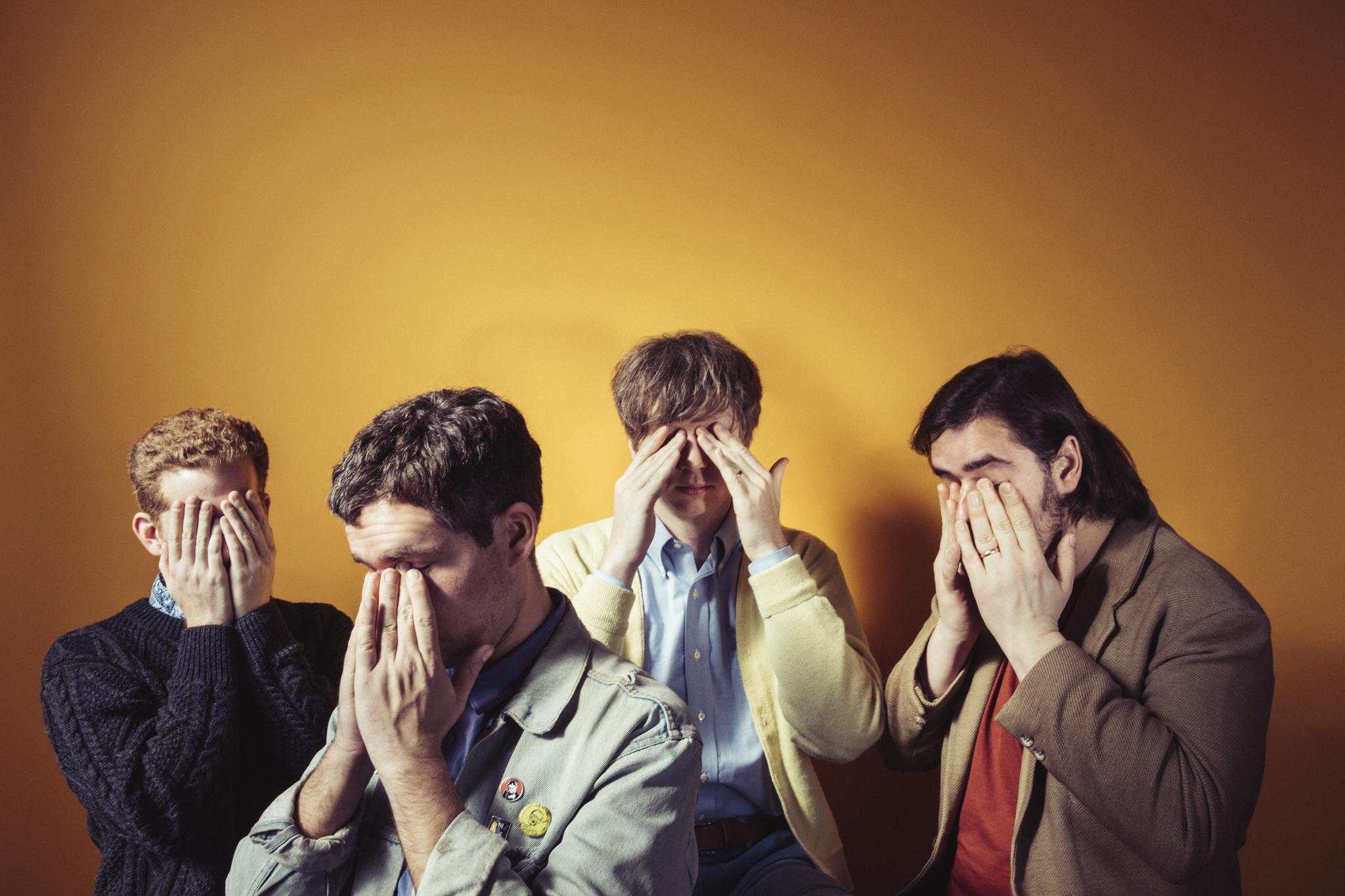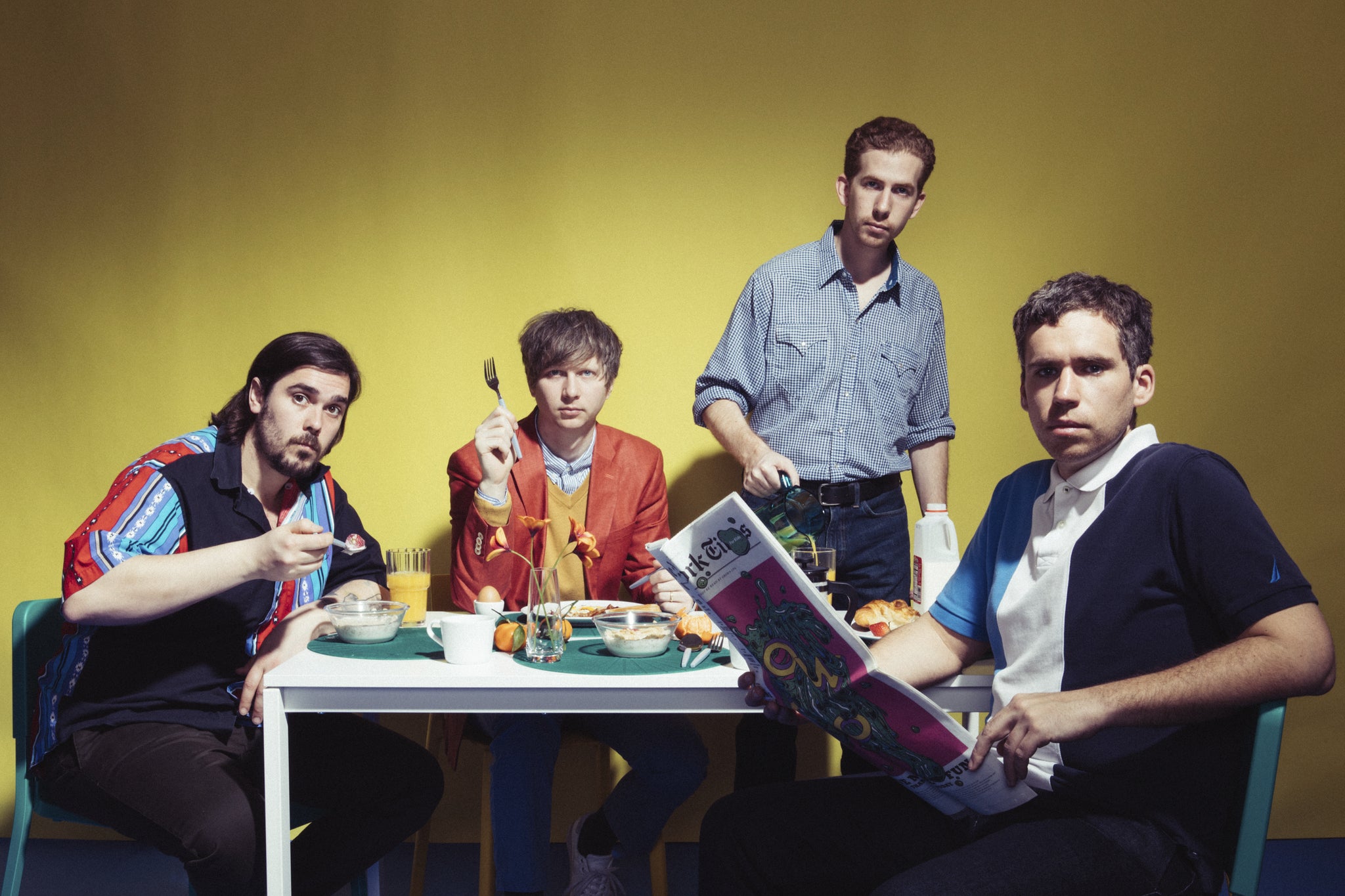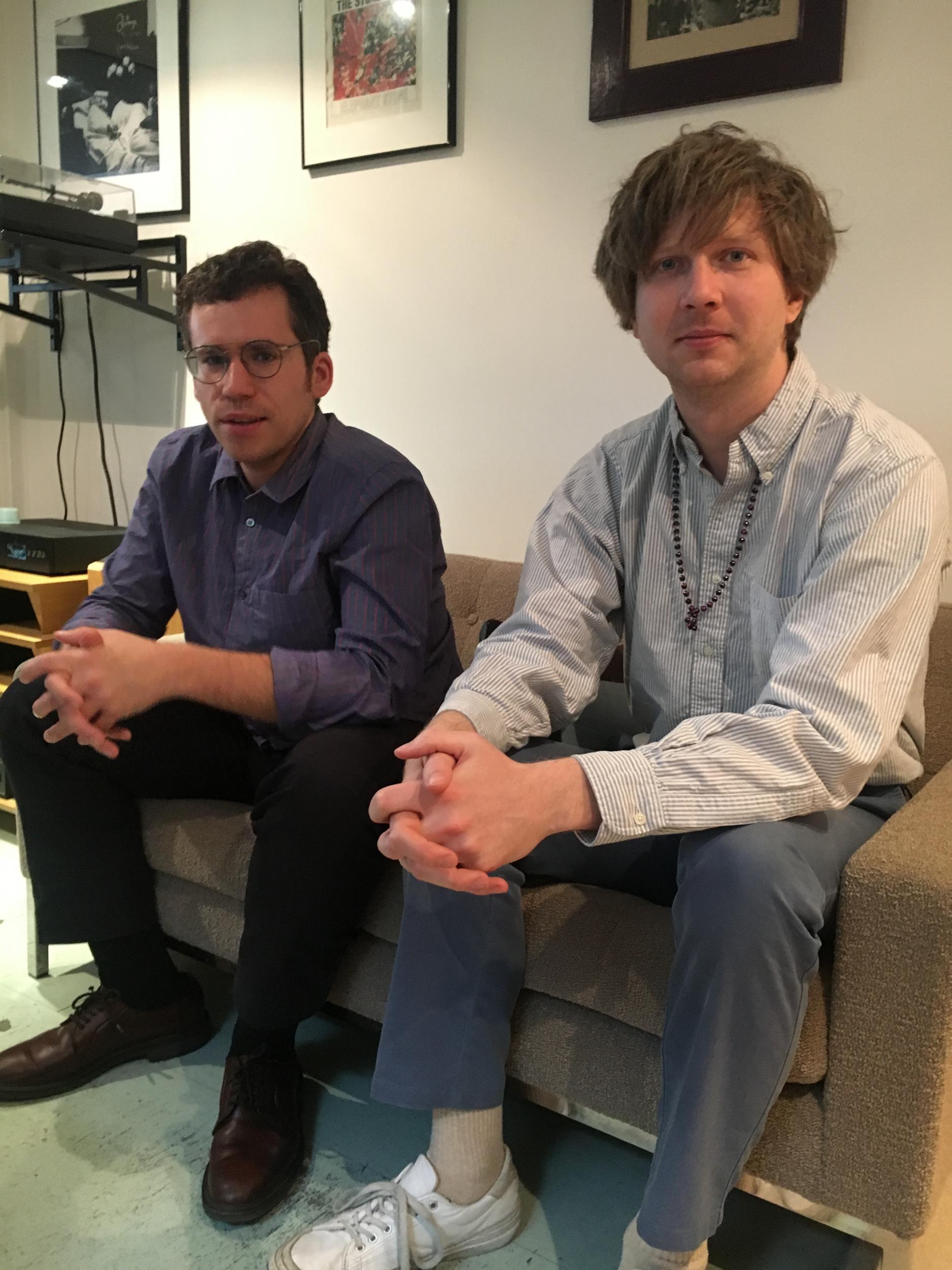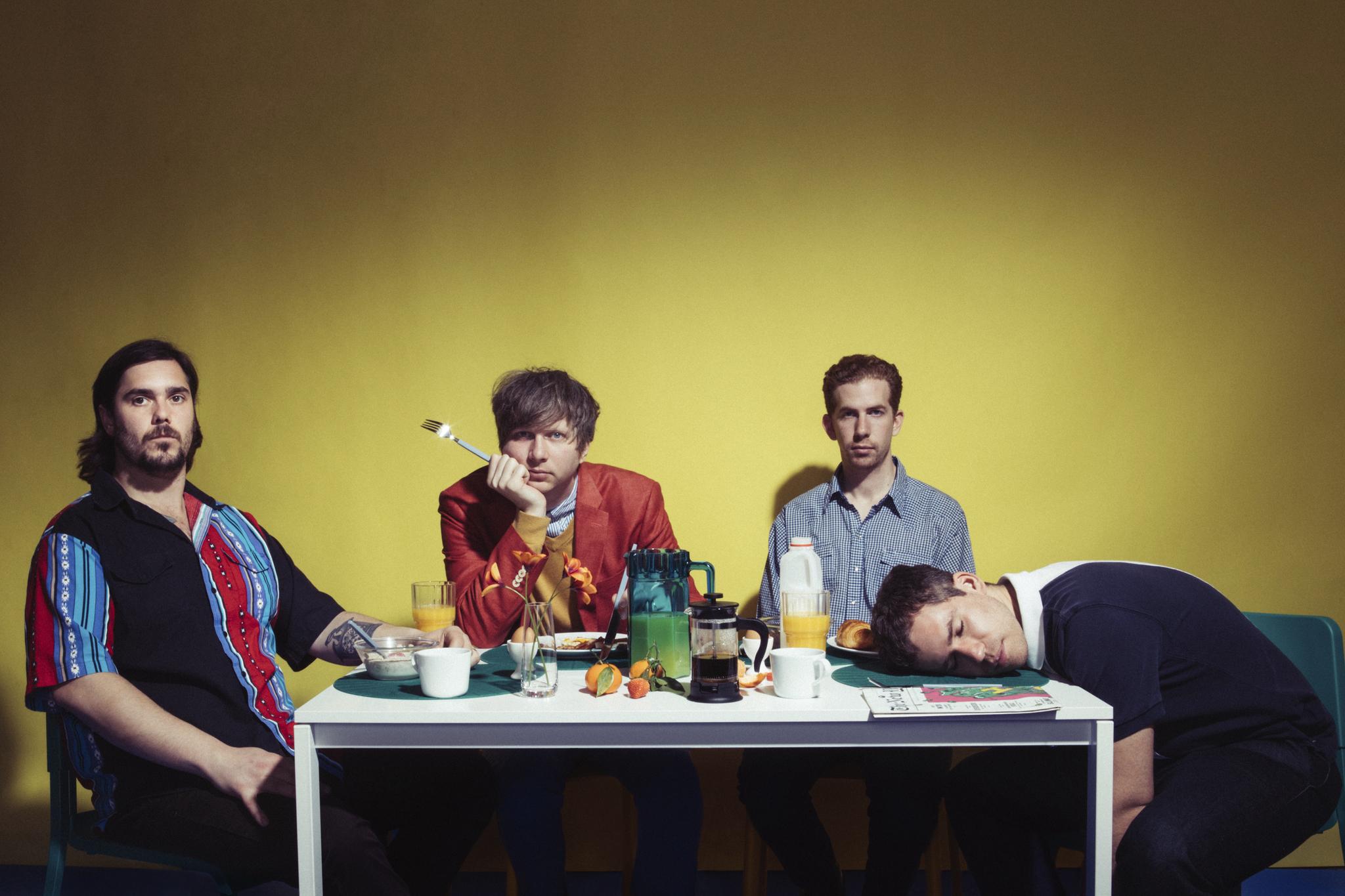Parquet Courts interview: The rage and hope for change in America
Indie politics meets indie politics: our Chief Political Commentator spoke to Andrew and Austin, the band’s co-lead singers and guitarists, about Trump, guns and violence... and a growing sense of optimism that things will get better

It was the most ambitious crossover event in history. Raw and aggressive rock band meets establishment politics commentator. It wasn’t so much an interview as a parley between two tribes intrigued by each other. I met Andrew and Austin of Parquet Courts at the Rough Trade office in Portobello, west London.
I don’t know what I expected, but they weren’t it. They were polite, thoughtful, articulate and serious, albeit with a subversive sense of humour that kept breaking through. If I didn’t know they were the front people of my favourite band I would have said they were directors of a successful US tech startup.
I think they expected a deep debate about politics from me but instead they got an embarrassing gush about how much I loved their music and the new album, Wide Awake! (out on 18 May). Still, we found common ground. They were pleased to have it from someone old enough to have been there that their music captures the energy and simplicity of early punk.
They weren’t born when I saw the Sex Pistols at the Lafayette Club in Wolverhampton in 1977 (I may have mentioned this before). They are both 32. But they know more about punk than me. “It went into the underground, especially in America, in the Eighties,” said Andrew, otherwise known as “A, or A Savage, or His Savageness”, he explains, not sounding very savage. “A lot of that stuff was the first music that I got really heavily into that wasn’t on MTV. I got into a lot of those bands because the mother of a friend of mine gave him a tape that had Crass on it, Cockney Rejects, Dead Kennedys, Misfits, Black Flag.”

A track on the new album called “Almost Had to Start a Fight” could be a lost Sex Pistols recording. It starts with Andrew shouting “Almost, almost, almost…” Other tracks are more like the Stranglers, who were not really punk because they could actually play, but who rode the wave so well. Andrew liked that comparison too: “That is a band that I love.” It turns out that he and I are both fans of the Stranglers’ debut album, Rattus Norvegicus.
Luckily, they also take it as the compliment I intended when I compare some of their new album to Pink Floyd. There’s a track on it called “Death Will Bring Change”, which is about the death of Austin’s sister in a car crash at the age of 16. It has lots of echo and a children’s choir. A bit like The Wall, I said, getting innocent-sounding children to sing bleak, knowing lyrics. “They have to learn somehow that life is cruel,” said Andrew.
Recording the children’s voices at a rock music school on the Upper East Side was a nightmare, said Austin. “It was early morning, I’d had a late night the night before. We had to do the whole thing in about 20 minutes, which was about the length of these kids’ attention span anyway.”
I wasn’t sure about asking what the song was about. “No, I don’t mind talking about it,” said Austin. “It’s not about the death so much as how it affects – how it changes your personality; how it changes your life. Death is tragic and then the people who are left to deal with it, with grief, who are still around, have to deal with the emotional effect – that’s what the song is about.”

So, instead of talking about politics, we talk about the meaning of “Freebird II”, currently my favourite of Parquet Courts’ entire output. It turns out that it is about Andrew’s mother. It “comes out of my upbringing, specifically things to do with my mother, who has struggled with drugs and been incarcerated and struggled with housing and things to do with that”.
I want to know more, but again I hold back, partly, I admit, because I’m afraid that it might change the song for me. Two of the great things about Parquet Courts are his rough voice and his haunting, allusive lyrics, as weird and evocative as David Bowie at his best. “What a song is about to its author is not what it has to be about to the listener,” said Andrew.
Perhaps it would be safer to escape into politics. “It’s a political record,” Andrew said of the album. They do not like Donald Trump and they are appalled by the death toll from guns.
“It became very important for us to express where we stand and what we don’t accept as being normal. That’s kind of what the song ‘Normalisation’ is about,” he said. “In the Nineties there was a ban on assault weapons that Bill Clinton signed. But it expired and wasn’t re-signed by the second Bush, and the level of mass shootings has gone up and become more and more normal. Combine that with the rhetoric that Trump is espousing about enemies, it is emboldening these angry people that otherwise wouldn’t have acted, it emboldens their racism and sexism.”
Yet they are surprisingly optimistic. “Everybody’s just really scared right now,” said Andrew. “But there is a new energy that’s evident – maybe the silver lining to this ends up being that a lot of things change because of how extreme things have gotten. I think there are a lot of things to be hopeful for.”
They think the Parkland school shooting, and the response to it, might be “a fork in the road”. American politics may be reaching a “tipping point”, said Andrew, because “I don’t think that people who are socially conservative can relate to Trump at all. They’ve voted for decades for the Republicans because they want lower taxes but now they can’t proudly consider themselves Republican because it’s so closely related to a morally despicable person. Bernie Sanders is a popular candidate for people on both sides of the spectrum.”

They were inspired by the election of Danica Roem, a trans woman, to the legislature in Virginia, “a really conservative state”, last November. “There was a hateful campaign against her and she just wanted to talk about how to fix the roads. What people are waking up to is: the government needs to work, and it has a purpose for everyone, liberal or conservative. Everyone needs to get something out of it. We pay our taxes for a reason.”
Going back to the album, Andrew said: “It was important that it ends on a note of optimism.” The last track, “Tenderness”, is a great song with a plinky-plonk piano counterpoint to the lyrics of insecurity. “I can’t count how many times I’ve been outdone by nihilism” it goes, before concluding with a cautiously optimistic line: “Like a junkie going cold, I need the fix of a little tenderness.”
It’s a simple message of coming together rather than division... but then that’s the kind of politics I agree with. And I hope they are right about the tipping point in America.
The new Parquet Courts album Wide Awake! is out on 18 May
Join our commenting forum
Join thought-provoking conversations, follow other Independent readers and see their replies
Comments
Bookmark popover
Removed from bookmarks